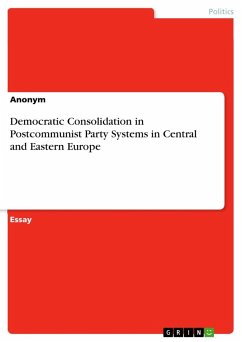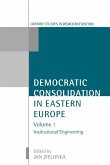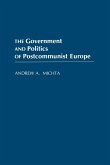Essay from the year 2020 in the subject Politics - History of Political Systems, grade: 1,3, Leuphana Universität Lüneburg, course: Party Government in Europe, language: English, abstract: In this paper, the stability of party and government systems in the "new" member states of the European Union from Central and Eastern Europe is investigated, as well as the process of democratic consolidation in those countries. The research aim is to examine how significant the discrepancies between the established Western democracies and the postcommunist EU members still are, three decades now after the system transformations in the early 1990s. Besides the rather broad comparison between West and East, variances among the different postcommunist states and over time is examined. For this purpose, a literature review is made by summarizing and then comparing the findings of multiple authors, before an own evaluation of current data from the Bertelsmann Transformation Index (BTI) is made. In the end, the main conclusion of this paper is that there are similarities as well as differences between the "old" and the "new" EU member states thirty years after the collapse of communism. In terms of government stability and democratic consolidation, however, the considerable differences mainly do not exist on an interregional, but rather on an intraregional level, given the significant variance among the postcommunist states. Therefore, the results are not completely unambiguous, leading to the necessity of further research in this field.
Hinweis: Dieser Artikel kann nur an eine deutsche Lieferadresse ausgeliefert werden.
Hinweis: Dieser Artikel kann nur an eine deutsche Lieferadresse ausgeliefert werden.








